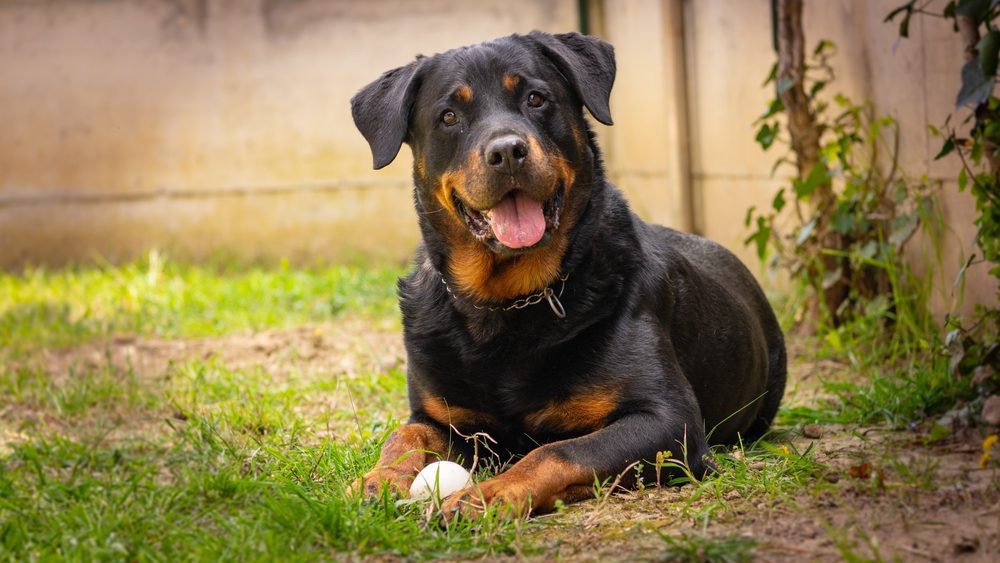
Rottweilers are big, loyal dogs that can spark curiosity and maybe a little fear in dog lovers and the public. One interesting question people have is whether Rottweilers growl when they’re happy. Let’s dive into the world of Rottweiler behavior, looking at how they act at different ages, how their behavior changes as they grow up, how their surroundings affect them, and whether growling is a sign of happiness for these amazing dogs.
Early Stages of Rottweilers : Puppyhood to Adolescence
Rottwhttps://rottweilerscare.com/category/blog/eiler puppies are like any other pups—they’re innocent and curious. When they’re little, growling is more about playfulness than happiness. It’s just how they explore and communicate.
As they grow from puppies to teenagers, growling might get more intense during playtime as they figure out their strength and establish their place in their litter or group of friends.
Making sure they meet lots of different people, animals, and places during this time is super important. It helps them learn how to react properly and reduces the chances of growling becoming a bad habit.
Adulting of Rottweilers: Being Grown-Up
Once Rottweilers hit adulthood, usually around 1-2 years old, they start acting more mature and steady. They become more confident and aware of what’s going on around them.
Growling might happen during this time as a response to feeling threatened or trying to show who’s boss, especially in new situations or around new people or animals.
It’s important to tell the difference between mean growling and just communicating. Rottweilers naturally want to protect their family and home, so growling could be their way of staying alert and loyal instead of being mean.
Golden Years of Rottweiler: Chillin’ Out
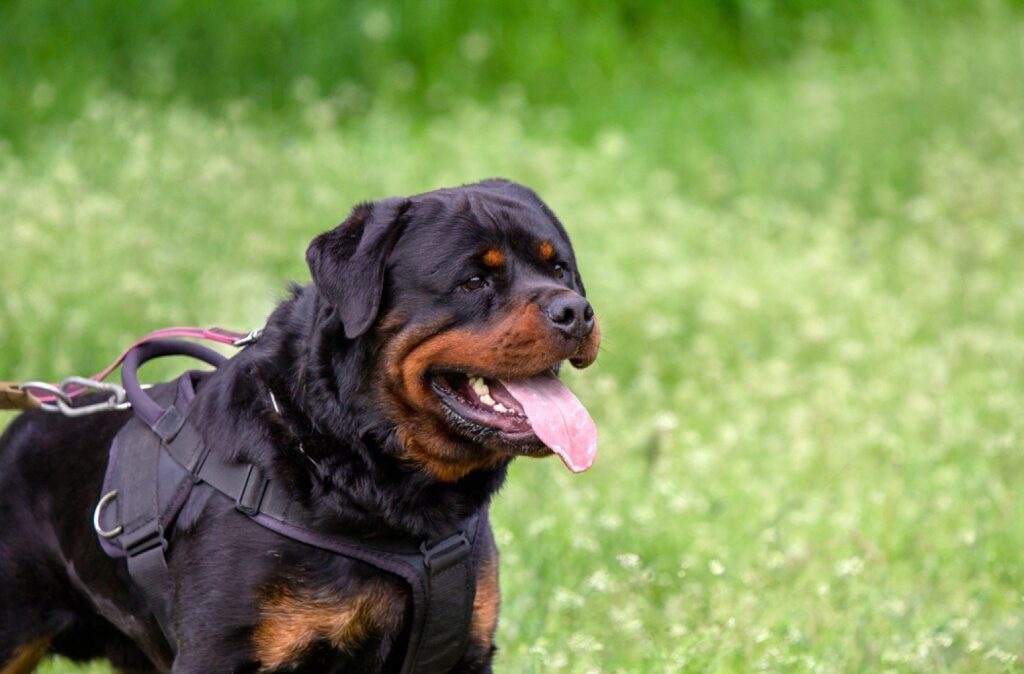
When Rottweilers get older, usually around 7–10 years old, they calm down and act more peaceful. Growling, if it happens, is less common and usually for a good reason, like feeling uncomfortable or in pain.
Keep an eye out for any changes in their behavior during this time, as it could signal health issues or discomfort. Regular trips to the vet and good care are super important to make sure they stay happy and healthy.
How Rottweiler are Raised Matters
While genes play a big part in how Rottweilers act, their environment also has a big impact. How they’re brought up, trained, and socialized really shapes how they behave.
Using positive techniques, like rewarding good behavior and introducing it to lots of different people and animals, can help cut down on growling.
On the flip side, neglect, mistreatment, or not socializing them properly can make aggressive tendencies worse and lead to bad behavior.
Decoding Rottweiler Growling: Understanding the Signals
Rottweilers use growling to communicate various feelings and intentions. It’s important to pay attention to the situation and body language to figure out what they’re trying to say.
Happy growling can happen during play or affectionate moments. It’s usually softer and comes with relaxed body movements like wagging tails.
On the other hand, growling can also mean discomfort or fear, especially if the dog shows other signs of stress like flattened ears or avoidance behaviors.
Training for Better Behavior
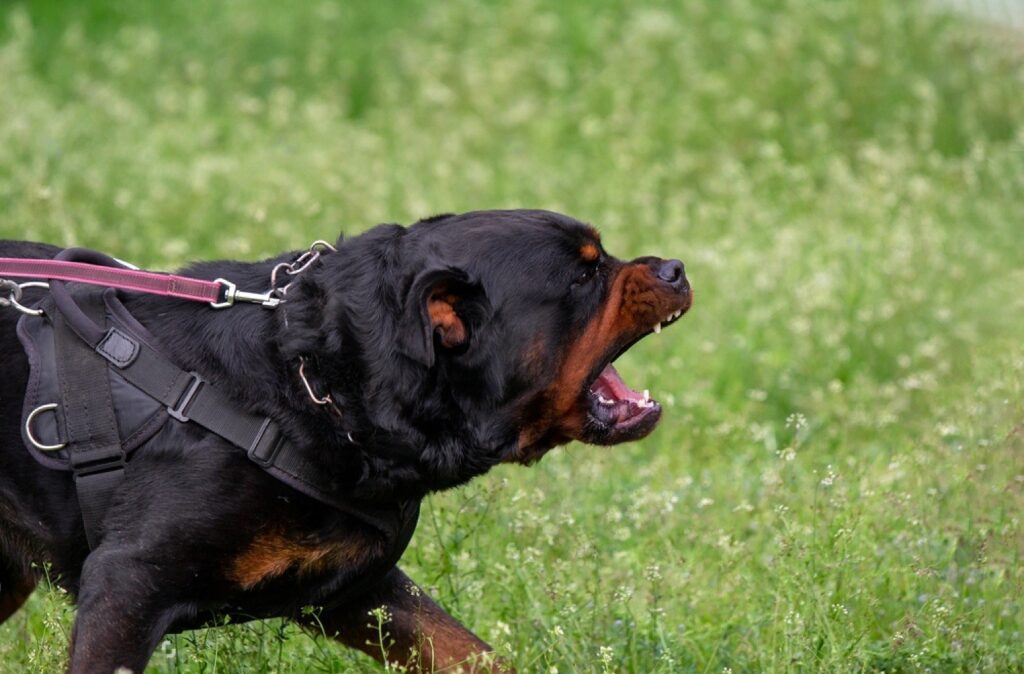
Training is key to shaping a Rottweiler’s behavior and can help with excessive growling. Positive reinforcement methods like clicker training and treats work well in teaching good habits.
Being consistent, patient, and understanding is crucial in training Rottweilers. Avoid harsh punishment, as it can make behavior issues worse.
Getting help from professional trainers or behaviorists is a good idea, especially for complex behavior problems or underlying psychological issues causing growling.
Some frequently asked questions for our Rottweiler, let’s go to were:
Why Does My Rottweiler Growl At Me When I Hug Him?
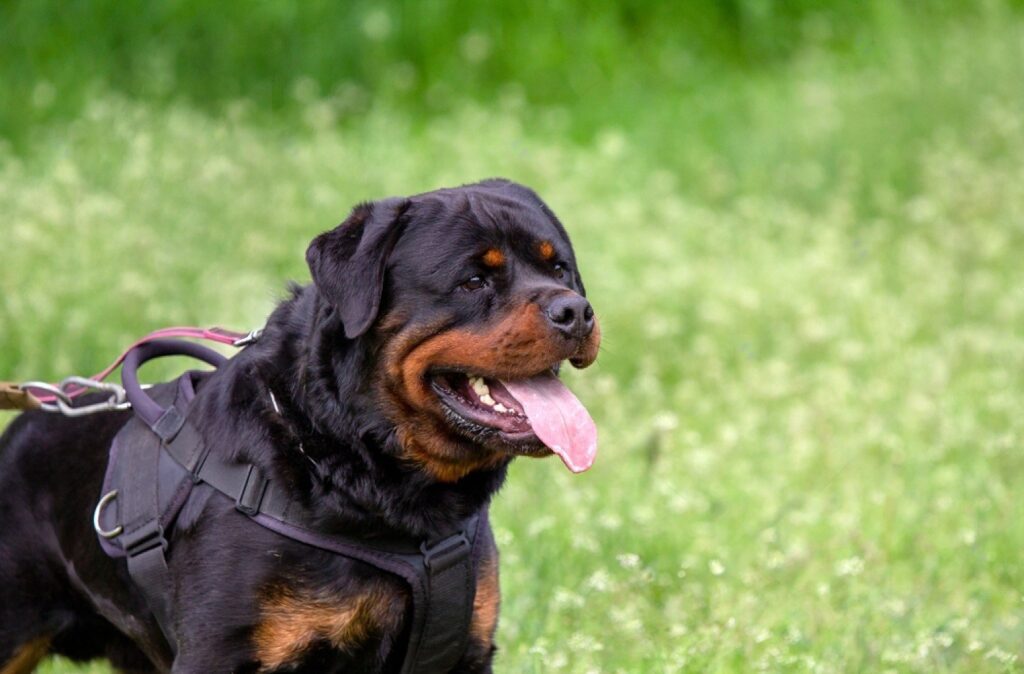
Your Rottweiler might not be a fan of hugs, so when you squeeze them, they could feel uncomfortable or stressed. It’s best to avoid hugging them and instead reward them when they behave well. Don’t scold them for growling, as that can make things worse.
Why do Rottweilers growl and show teeth?
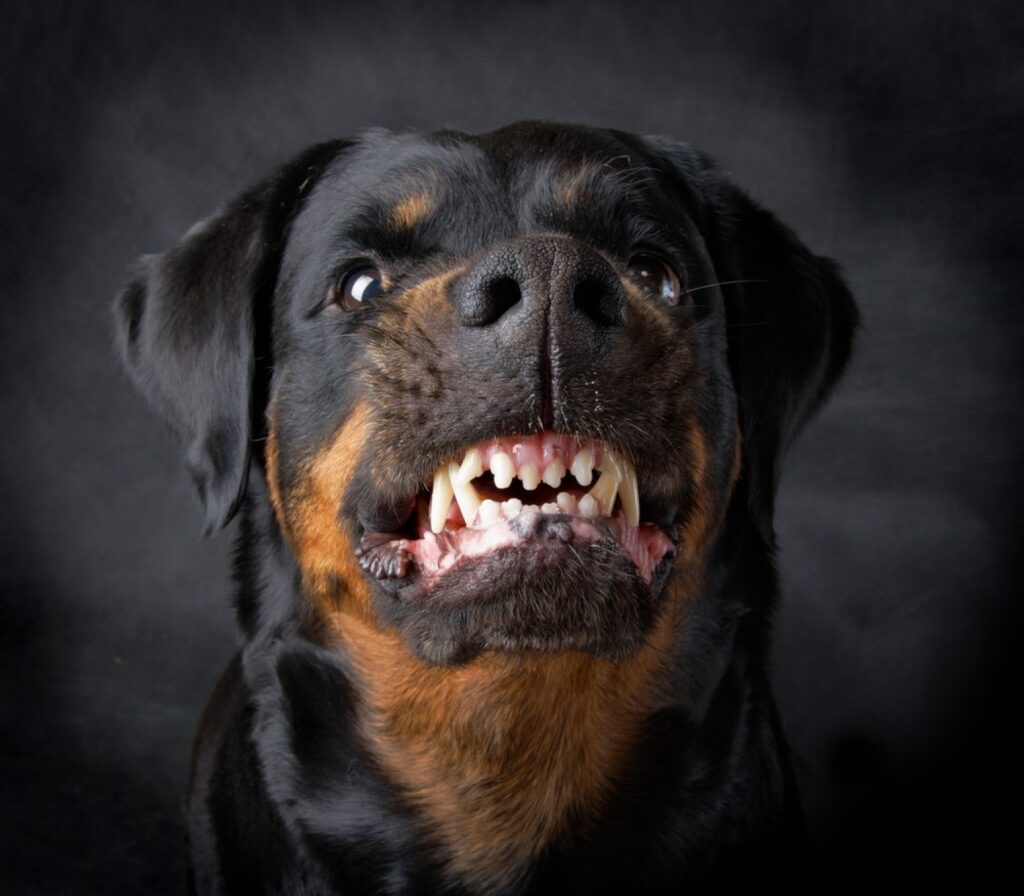
Rottweilers use growling and showing teeth to communicate when they feel threatened. It’s their way of saying, “Stay back!” or “I’m not happy.” They might also do it to show dominance over others.
To sum it up, Rottweilers are pretty complex creatures whose behavior changes over time based on different things inside and outside of them. Growling can happen for lots of reasons, and it doesn’t always mean they’re happy. It’s more like a way for them to talk to us, and it can be influenced by how old they are, where they live, and their own personality. If we figure out why they’re growling, like if they’re scared, uncomfortable, or trying to be in charge, we can have better relationships with them and make sure they’re happy and healthy in our homes and neighborhoods. With the right training, socializing, and care, Rottweilers can be awesome pets and important parts of our families.